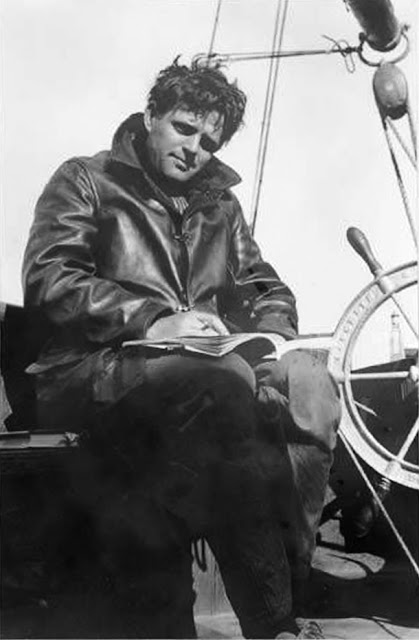
WADE ATSHELER is dead--dead by his own hand. To say that this was entirely unexpected by the small coterie which knew him, would be to say an untruth; and yet never once had we, his intimates, ever canvassed the idea. Rather had we been prepared for it in some incomprehensible subconscious way. Before the perpetration of the deed, its possibility was remotest from our thoughts; but when we did know that he was dead, it seemed, somehow, that we had understood and looked forward to it all the time. This, by retrospective analysis, we could easily explain by the fact of his great trouble. I use "great trouble" advisedly. Young, handsome, with an assured position as the right-hand man of Eben Hale, the great street-railway magnate, there could be no reason for him to complain of fortune's favors. Yet we had watched his smooth brow furrow and corrugate as under some carking care or devouring sorrow. We had watched his thick, black hair thin and silver as green grain under brazen skies and parching drought. Who can forget, in the midst of the hilarious scenes he toward the last sought with greater and greater avidity--who can forget, I say, the deep abstractions and black moods into which he fell? At such times, when the fun rippled and soared from height to height, suddenly, without rhyme or reason, his eyes would turn lacklustre, his brows knit, as with clenched hands and face overshot with spasms of mental pain he wrestled on the edge of the abyss with some unknown danger.
He never spoke of his trouble, nor were we indiscreet enough to ask. But it was just as well; for had we, and had he spoken, our help and strength could have availed nothing. When Eben Hale died, whose confidential secretary he was--nay, well-nigh adopted son and full business partner--he no longer came among us. Not, as I now know, that our company was distasteful to him, but because his trouble had so grown that he could not respond to our happiness nor find surcease with us. Why this should be so we could not at the time understand, for when Eben Hale's will was probated, the world learned that he was sole heir to his employer's many millions, and it was expressly stipulated that this great inheritance was given to him without qualification, hitch, or hindrance in the exercise thereof. Not a share of stock, not a penny of cash, was bequeathed to the dead man's relatives. As for his direct family, one astounding clause expressly stated that Wade Atsheler was to dispense to Eben Hale's wife and sons and daughters whatever moneys his judgment dictated, at whatever times he deemed advisable. Had there been any scandal in the dead man's family, or had his sons been wild or undutiful, then there might have been a glimmering of reason in this most unusual action; but Eben Hale's domestic happiness had been proverbial in the community, and one would have to travel far and wide to discover a cleaner, saner, wholesomer progeny of sons and daughters. While his wife--well, by those who knew her best she was endearingly termed "The Mother of the Gracchi." Needless to state, this inexplicable will was a nine days' wonder; but the expectant public was disappointed in that no contest was made.




